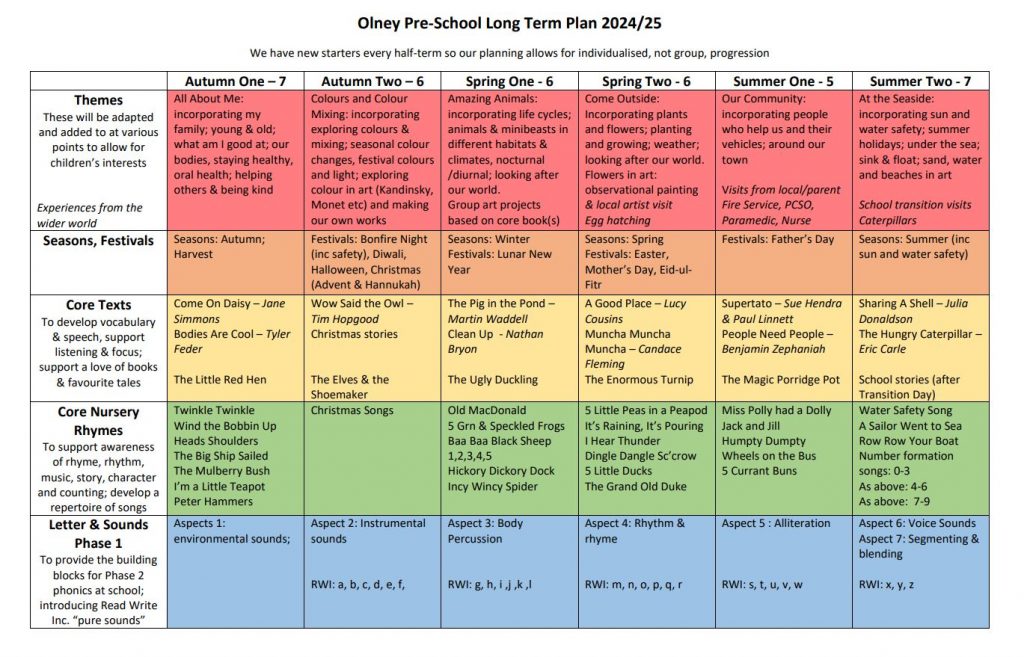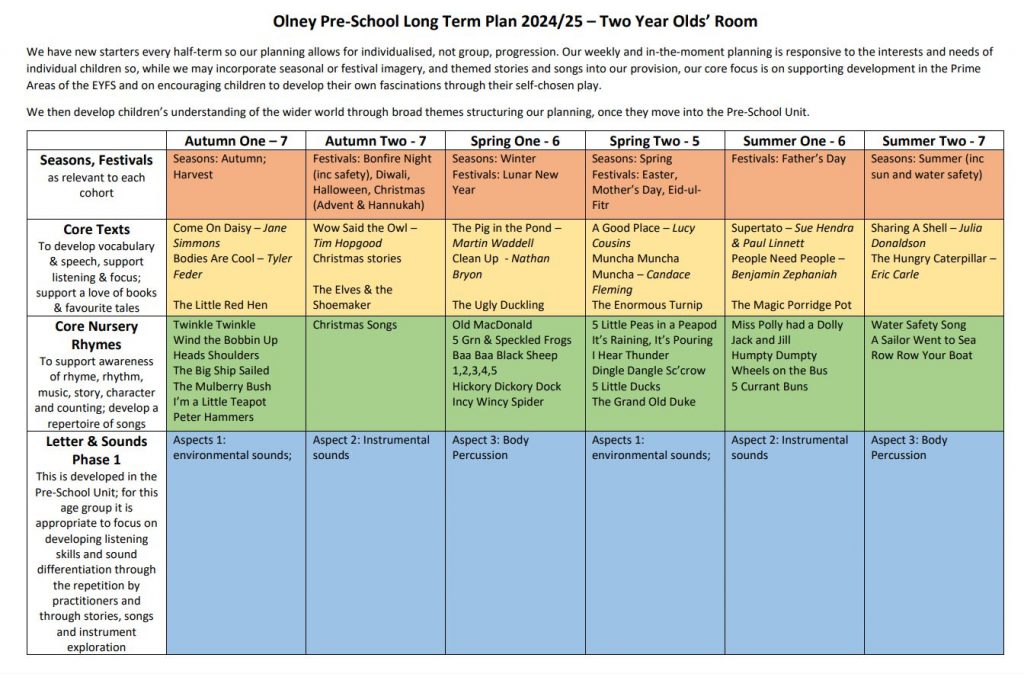The pre-school follows the Early Years Foundation Stage (EYFS) statutory framework (here is a link to the guide for parents published by the Department for Education: What to expect in the EYFS), which covers the learning, development and care of children from birth to the end of reception class at school. Our curriculum, in both the Two Year Olds Room and the main Pre-School Unit, focuses on developing language and communication skills along with social skills, independence and resilience. We’ve planned our curriculum for each area using our knowledge of children’s development and needs in each age group, and to support the progression of learning as children grow. Please have a look at the attached Curriculum and Goals documents for further details about where we want children to get to and how we help them get there. The Long Term Plan gives an overview of how we structure learning in the Pre-School Unit across the year to ensure that key areas of the EYFS receive appropriate focus. We send out a weekly email to parents explaining our activities for the coming week, as well as posting on our Facebook page with any news about events. We plan termly Parents’ Evenings to give you an opportunity to chat with your child’s Key Person about their progress and look through their Learning Journey. We are also available for more informal chats at drop-off or collection times. Parents can get involved by coming in to share Sessions with their child, joining our committee, helping on outings and during fundraising events.



Find lots of ideas, easy tips and activities you can do together with your child on the Start for Life website Early learning and development – Start for Life – NHS – NHS or on the Tiny Happy People website https://www.bbc.co.uk/tiny-happy-people
As children develop, they often learn through repetition and this can help in development in many ways. These are known as ‘schemas’ and this repeated action helps the child to establish internal cognitive structures in the brain.
Although children often show particular schemas in their play, not all children appear especially schematic. Some children show one particular schema strongly and others show several at once. Sometimes one schema which has been particularly strong will seem to fade, possibly to be replaced by another. Awareness of schemas offer a key to understanding ways in which children behave. In the planning process at pre-school age, an awareness of children’s schemas can be invaluable in matching curriculum content with children’s interests and needs. The following document gives more details of the main categories of schema.
